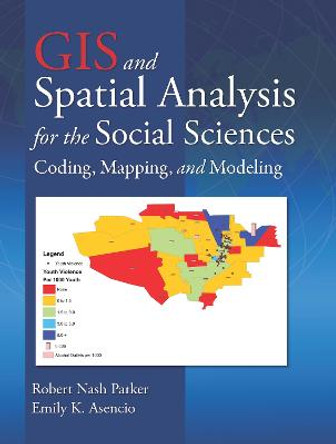Description
About the Author
Dr. Guangqing Chi is Associate Professor of Rural Sociology and Demography with courtesy appointments in Department of Sociology and Criminology and Department of Public Health Sciences at The Pennsylvania State University. He also serves as Director of the Computational and Spatial Analysis Core of the Social Science Research Institute and Population Research Institute. Dr. Chi is an environmental demographer. His research examines the interactions between population change and the built and natural environments. He pursues his research program within interwoven research projects on climate change, land use, and community resilience, with an emphasis on environmental migration and critical infrastructure/transportation and population change within the smart cities framework. Most recently, Dr. Chi has applied his expertise in big data to study issues of generalizability and reproducibility of Twitter data for population and social science research. He also studies environmental migration, including projects on coupled migrant-pasture systems in Central Asia, permafrost erosion and coastal communities, and ecological migration in China. Dr. Chi's research has been supported through grants from national and state agencies, including the National Science Foundation, National Institutes of Health, National Aeronautics and Space Administration, and U.S. Department of Transportation. He has published about 50 articles in peer-reviewed journals. His research on gasoline prices and traffic safety has been highlighted more than 2,000 times by various news media outlets, such as National Public Radio and Huffington Post. Dr. Jun Zhu is Professor of Statistics at the University of Wisconsin-Madison. She is a faculty member in the Department of Statistics and the Department of Entomology, as well as a faculty affiliate with the Center for Demography and Ecology and the Department of Biostatistics and Medical Informatics. The main components of her research activities are statistical methodological research and scientific collaborative research. Her statistical methodological research concerns developing statistical methodology for analyzing spatially referenced data (spatial statistics) and spatial data repeatedly sampled over time (spatio-temporal statistics) that arise often in the biological, physical, and social sciences. Her collaborative research concerns applying modern statistical methods, especially spatial and spatio-temporal statistics, to studies of agricultural, biological, ecological, environmental, and social systems conducted by research scientists. Dr. Zhu's methodological and collaborative research projects have been supported by the Environmental Protection Agency, National Institutes of Health, National Science Foundation, U.S. Department of Agriculture, U.S. Department of Defense, and U.S. Geographical Society. She is a Fellow of the American Statistical Association and a recipient of the Distinguished Achievement Medal in its Section of Statistics and the Environment.
Reviews
"This is an important book bringing together a family of related statistical measures and explaining them in a coherent way. Written by leading researchers in the field, it uses a consistent spatial example and applies and explains various measures within a unifying frame to aid in understanding by readers. As real-time spatial data becomes increasingly prevalent, the need for analysts to accurately and meaningfully interpret this data is rapidly growing." -- David Levinson
"The field of spatial regression has grown rapidly over the last decade. This book goes a long way toward filling a gap by providing students and practitioners with a useful text that is written at a level that should make it broadly accessible." -- Peter Rogerson
"This is an exceptionally well-written text on spatial data analysis tailored for social science research. It deals with spatial thinking and regression analysis with remarkable depth and expertise in a comprehensive and easy-to-follow manner. It is a primer that should be on every social scientist's shelf." -- Zudi Lu
"This introductory book offers a full overview of the different ways in which a standard linear regression model can be extended to contain spatial effects."
-- J. Paul Elhorst"Spatial data science is an evolving field. This is a valuable book that introduces to students, researchers, and faculty the foundation of spatial statistics and offers tremendous insights on how to statistically analyze geo-spatial data. Anyone working geo-data must read this book if they want accurate and unbiased research findings."
-- J.S. Onesimo Sandovalthe book's main strength is its efficiency, organization, and methodical approach to explaining many concepts in spatial regression. It does not necessarily progress in concept difficulty nor in concept importance, but mixes both to form a coherent volume that is a strong reference for both looking up terms as a "refresher" and as a guide to diversifying one's own spatial regression techniques for a comparative analysis
-- Clio Andris * EPB: Urban Analytics and City Science *
Book Information
ISBN 9781544302072
Author Guangqing Chi
Format Hardback
Page Count 272
Imprint SAGE Publications Inc
Publisher SAGE Publications Inc
Weight(grams) 760g







